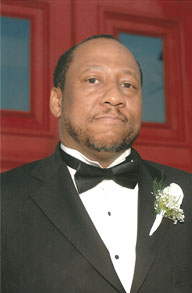Alfonzo B. Owens III ’75 cares for those less privileged
By Dan Edelen
 At dawn in Mt. Vernon, N.Y., most days of the week you can find the definition of dedication behind the wheel of a car. Dentist Alfonzo B. Owens III ’75 is heading for Brooklyn, commuting to the clinic he helped found, Cumberland Diagnostic and Treatment Center, to tend to the oral-health needs of the less privileged.
At dawn in Mt. Vernon, N.Y., most days of the week you can find the definition of dedication behind the wheel of a car. Dentist Alfonzo B. Owens III ’75 is heading for Brooklyn, commuting to the clinic he helped found, Cumberland Diagnostic and Treatment Center, to tend to the oral-health needs of the less privileged.
Owens works with three other dentists to deliver high-quality care at the center, which is part of New York City’s public hospital system, the largest municipal health-care system in the country. His patients, mostly Caribbean, Hispanic, and Eastern European immigrants, cling to the promise of the American dream and hope for a better future, a hope Owens has nurtured for more than 27 years.
“I look at each person as an individual and as a child of God,” Owens says. No matter their economic situation or hardships, his patients know Owens will “treat each person as I would like to be treated.”
Owens credits his family as the foundation of his career success and life principles. His grandmother, Emma, worked as a domestic to put Owens’ father through dental school. She later lived with Owens’ family and “reinforced all the values of my parents.” His father’s commitment to dentistry – 54 years in private practice until his death in 2004 – spurred Owens to follow his father’s lead, a direction that began taking shape at Lafayette.
A sprinter in high school – and distant relative to the legendary Jesse Owens – Owens sought out Lafayette for its balance of academics and athletics. “I didn’t want a program that put sports first and academics second,” says the biology graduate.
“Lafayette helped me to look at things from a scientific point of view” and “allowed me to build my confidence in myself, in my own abilities and be more comfortable when interacting with people in different settings,” says Owens, who met his wife of 26 years, Kim Wilson Owens ’77, at the College. He fondly remembers pickup basketball games with professors and meetings of the Association of Black Collegians, where he encountered speakers such as journalist and media producer Gil Noble, whom he still follows today.
After Lafayette, he went to the University of Pennsylvania School of Dental Medicine, where his classmates included a number of former Leopards. He graduated in 1979 and, after serving a one-year residency at the Philadelphia Veterans Administration Medical Center, joined his father’s practice.
The two went on to collaborate for 24 years, but the younger Owens’ focus on the needs of the city led him to complete a master’s degree in public health at New York Medical College in 1989 and found the Cumberland Center. Owens started his own practice after his father’s death, but he still spends most of his days at the Brooklyn clinic. He also provides dental care to nursing-home residents in his area, a work he’s performed for 19 years.
“Being a dentist allows me to be creative within the science realm,” he says, noting that rapid changes in the field keep him in a state of constant learning, as new techniques and materials evolve. “Dentistry is now a more exciting place to be,” he observes. “Cosmetic dentistry has made it more fun, [enabling] the more artistic side of the profession.”
When not behind the mask and gloves, Owens enjoys spending time with his son, Avery, and daughter, Khery. He also likes film photography and discovering more about the generations that preceded him. “I like investigating genealogy. I’ll follow things as far as they can go,” he says. He has traced his family’s ancestry back to 1822 so far.
Owens dedicates much of his free time to Mt. Vernon’s First United Methodist Church, chairing its board of trustees, sitting on its education and worship commissions, and participating in its administrative council. He has tried hard, he says, to help the youth at his church grow into the people God desires them to be.
“Lafayette has been a major factor for my success,” Owens says. “Each year, I could feel that I was growing and maturing as a person.”
 At dawn in Mt. Vernon, N.Y., most days of the week you can find the definition of dedication behind the wheel of a car. Dentist Alfonzo B. Owens III ’75 is heading for Brooklyn, commuting to the clinic he helped found, Cumberland Diagnostic and Treatment Center, to tend to the oral-health needs of the less privileged.
At dawn in Mt. Vernon, N.Y., most days of the week you can find the definition of dedication behind the wheel of a car. Dentist Alfonzo B. Owens III ’75 is heading for Brooklyn, commuting to the clinic he helped found, Cumberland Diagnostic and Treatment Center, to tend to the oral-health needs of the less privileged.